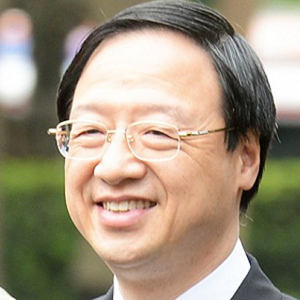The most dramatic change in work and workers appears to be the increasing significance of innovation, the expansion of freelancing, and the rise of social enterprise. All of these changes pose immense challenges, not only to employers and employees, but to governments.
Yi-huah Jiang is a former premier of the Republic of China, Taiwan. He is a research fellow at the Center for Advanced Study in the Behavioral Sciences at Stanford University.

In East Asia, rising businesses closely associated with innovation include biotechnology, wearable IT, energy, finance, entertainment, tourism, and environmentally friendly agriculture. This innovation accelerates freelancing. Future workers will likely value autonomy, flexibility, and diversity. The challenge for government is to guarantee the workers’ collective bargaining power, secure working conditions, and re-design pension systems to accommodate the growing number of freelance workers.
Another trend is the growth of social enterprise and entrepreneurship. Non-governmental organizations and non-profit organizations aim to promote the public good. We’ve seen a greater number of private enterprises emphasizing corporate responsibility, such as lowering our carbon footprint or caring for seniors. Yet a novel type of organization is emerging, which vows to apply commercial strategies to solve social problems or to enhance the well-being of humankind. The combination of business commitment and social ideal attracts many young people. Its challenge lies in the ambiguity of its positioning and the lack of necessary game rules.
Will job opportunities become better or worse with the advance of an innovation-driven economy and freelancing? Not everyone can adapt to jobs that demand a higher level of technology knowhow. The crisis of mid-career unemployment will therefore grow, and can be only temporarily alleviated by a decrease in population due to the global trend of falling birth rates, especially among advanced economies.
People don’t just work, they look for meaningful work. Many younger people prefer lower-paying jobs they deem meaningful to higher-paying jobs they consider meaningless. This is one reason that social enterprise has become so popular. As a result, the income distribution among citizens will probably worsen because of differing attitudes among people toward wages, which in turn generates the important issue of social justice.
To face a changing world of work, all the components of a society need to prepare, be it family, school, corporation, labor union, or social enterprise. What is frequently ignored is the role of government and the influence of laws. We are living in a highly regulated era. How the government decides policy involving fair trade, minimum wage, employer-employee relations, working conditions, portable pensions, and on-the-job training will affect a society’s adaptation.
The government should take the initiative to envision reasonable working conditions. It can assist the success of innovation industries by bridging the gap between schools and businesses, and by concentrating expenditures on infrastructure that induce competitiveness. It should strive to formulate a reasonable contract structure that substantially protects freelance and outsourced workers from exploitation. It can also encourage social enterprise by properly defining the latter’s legal status to alleviate concern over taxes, work space, grants, and the like. It is only by taking measures even greater than these that we can prepare for the fast-approaching new world of work.

For the Future of Work, a special project from the Center for Advanced Study in the Behavioral Sciences at Stanford University, business and labor leaders, social scientists, technology visionaries, activists, and journalists weigh in on the most consequential changes in the workplace, and what anxieties and possibilities they might produce.





